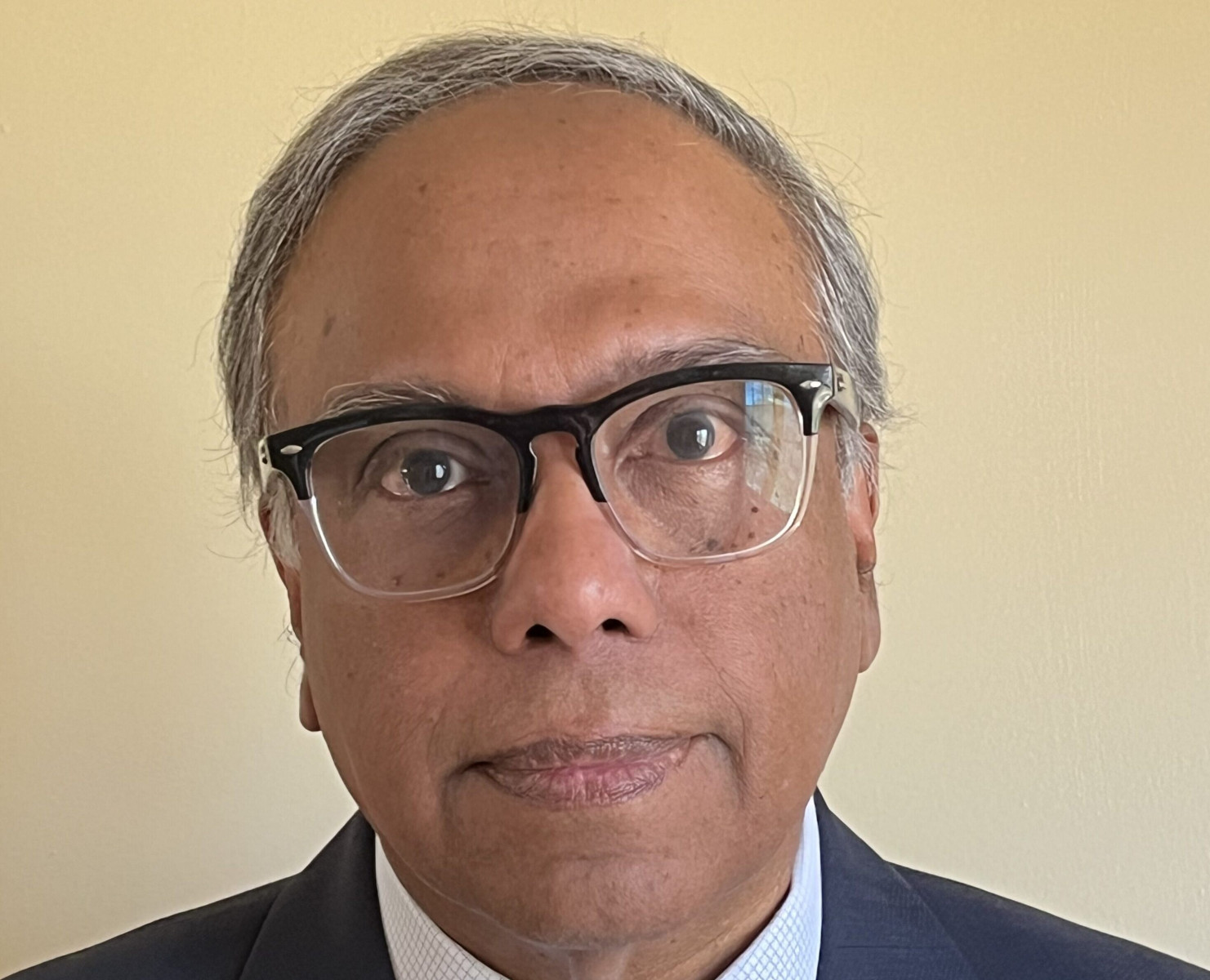Swanson School Honors Sankar Basu as its 2024 Distinguished Alumnus in Electrical and Computer Engineering
Above: Sankar Basu (center) with Department Chair Alan George (left) and Interim U.S. Steel Dean Sanjeev Shroff.
The University of Pittsburgh Swanson School of Engineering feted its 2024 class of Distinguished Alumni on Wednesday, April 10 at the University Club. Recognized among this year’s honorees was Sankar Basu MSEE ‘78, PhD EE ‘80, as the Distinguished Alumnus in Electrical and Computer Engineering.
“My department chair colleagues will agree that just when we think we’ve met the most amazing alumnus in our discipline, we meet another, then another,” said Alan George, Department Chair of Electrical and Computer Engineering. “We realize that so many of them are exceptional engineers with tremendous contributions to society. Sankar is such an engineer - exceptional. What is truly inspirational about Sankar is his ‘future forward’ approach to innovation in our respective fields. If I had been standing at this podium last year and said Chat GPT, datafication, or extended reality, almost all of us would be raising eyebrows. Electrical and computer engineering is advancing at breakneck speeds, and Sankar not only has his pulse on these technological revolutions, but through NSF is exploring them and driving the next advancements that will transform science and improve the human condition.”

About Sankar Basu
Sankar Basu is a member of the National Science Foundation scientific staff and program director whose research interests are in analytical aspects circuits and systems and signal processing. He is an author and coauthor of over one hundred refereed publications and holds 10 US Patents.
At NSF his primary responsibilities include Micro- and Nanoelectronic systems and architectures, Cyber-Physical Systems, along with machine learning and neuromorphic hardware design. He has been involved in several interdisciplinary programs at NSF and has played leading roles in several cross-agency joint initiatives; most recently, the "Energy Efficient Computing: from Devices to Architectures" with Semiconductor Research Corporation and the “Real Time Machine Learning Program” with DARPA. He previously served on the National Science and Technology Committee Office of Science and Technology Policy on Biometrics, and more recently co-chaired an interagency committee on Grand Challenges in Computing.
Prior to NSF he worked at the IBM T.J. Watson Research Center on statistical machine learning, speech, and multimedia data retrieval and has extensively published on filter synthesis, image processing, and nonlinear modeling techniques. He is a Fellow of the Institute of Electrical and Electronic Engineers (IEEE) and the American Association for the Advancement of Science (AAAS). He served on the faculty of Stevens Institute of Technology and was visiting senior scientist at the Naval Underwater Systems Center. Additional appointments include Alexander von Humboldt Fellow at Ruhr University, Germany, and the MIT Laboratory for Information and Decision Systems, as well as science advisor to the US Embassy in Berlin.
Dr. Basu served as Editor-in-Chief for IEEE Transactions on Circuits and Systems and the Editorial Board of IEEE Press, as well as other editorial capacities for many publications. Presently he serves on the editorial board of the Journal of Multidimensional Systems and Signal Processing (Springer) and recently coedited a 2-volume special issue of the IEEE Proceedings on non-silicon, non-von Neumann computing.
Dr. Basu was a founding general chair and a steering committee member of the first IEEE International Conference on Multimedia & Expo (ICME), today a major international conference. He was also co-organizer of the NATO Advanced Study Institute on Statistical Learning and Applications at the Katholieke University, Belgium.
From 2019 to 2022, he served as a council delegate representing the Engineering Section of AAAS, while the Semiconductor Research Corporation recognized him for Enhancing the Mission of SRC and NSF through Collaboration.
